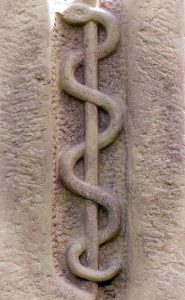The Bear, the Bird, and the Irishman: An Examination of the Loss of Innocence in “The Sound of Singing”
In the last images of the text, Dan has left the house, and with him innocence has left as well. Vanessa races to catch up to the fading sound of his singing, but doubts she’ll ever reach it.
The American Nightmare: Mohsin Hamid’s The Reluctant Fundamentalist and Sylvia Plath’s The Bell Jar
Although they may not seem similar at first glance, the novels The Reluctant Fundamentalist and The Bell Jar share the same goal: to make readers aware of how the American Dream can be detrimental to young people.
Watchmen and The Odyssey on the Nature of Violence
[…] the characters are meant to be human, truly human, with all the limitations of a normal human being, and the way in which the reader can identify this humanity is through their exposure to violence.
“A Lightning Burst of Knowingness”: What Chris Reveals About the Connor-MacLeod Family in A Bird in the House
[…] Chris sheds light on the different ways Vanessa’s family engages in arguments and conflict, and the ways they try (though they don’t always succeed) to communicate with one another.
Impression and Identity: How Margaret Laurence Reveals Character Through Observation and Reflection in A Bird in the House’s “The Mask of the Bear”
By providing glimpses of pain, emotion, and rich motivations, Laurence is able to strip the “rough-pioneer” stigma many Canadians associated with their personal histories.
Understanding White
I followed this idea back to its source—to the essays of James Baldwin—to finally begin to understand what it means to believe I am white, and to understand the consequences that belief can have.
Alienation and Belonging in Authority and Resistance
This paper will explore the ways in which different works read in Arts One this year address the role of alienation as a tool of authority and the importance of a sense of belonging in resistance.
Love is Where Edges Meet
[…] the story of love that Fadiman’s chronicles convey seems to suggest that it is through this universal human emotion that one can end moral hegemony.
V as Conductor
In Alan Moore and David Lloyd’s V for Vendetta, the eponymous V declares, following the word’s etymology, that “anarchy means ‘without leaders’” (195). However, just as the text’s evaluation of fascism does not necessarily coalesce with dictator Adam Susan’s evaluation, V’s evaluation of anarchy is distinctly his own.
The Perfect Match: Satire and Suffering in the Poor Mouth and the Inconvenient Indian
As James Joyce, the most influential Irish novelist, writes, Flann O’Brien is “a real writer with the true comic spirit”, a spirit that pervades The Poor Mouth. There is no doubt humour is a crucial factor of the book, a momentous aspect that seems to make the misery and suffering described enjoyable.









